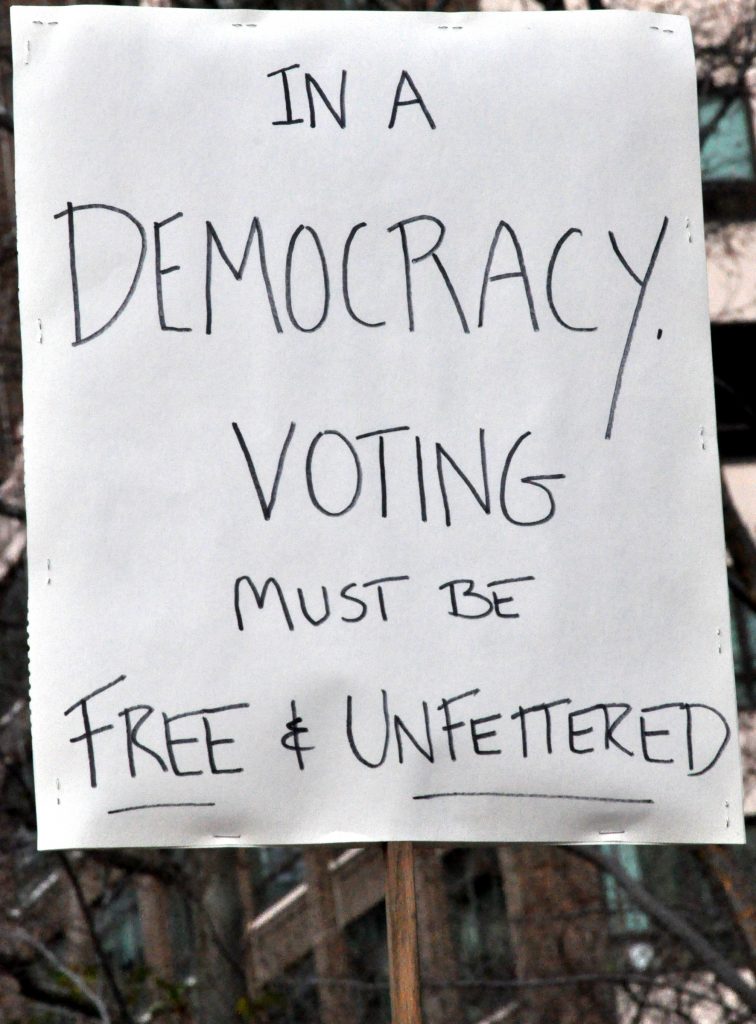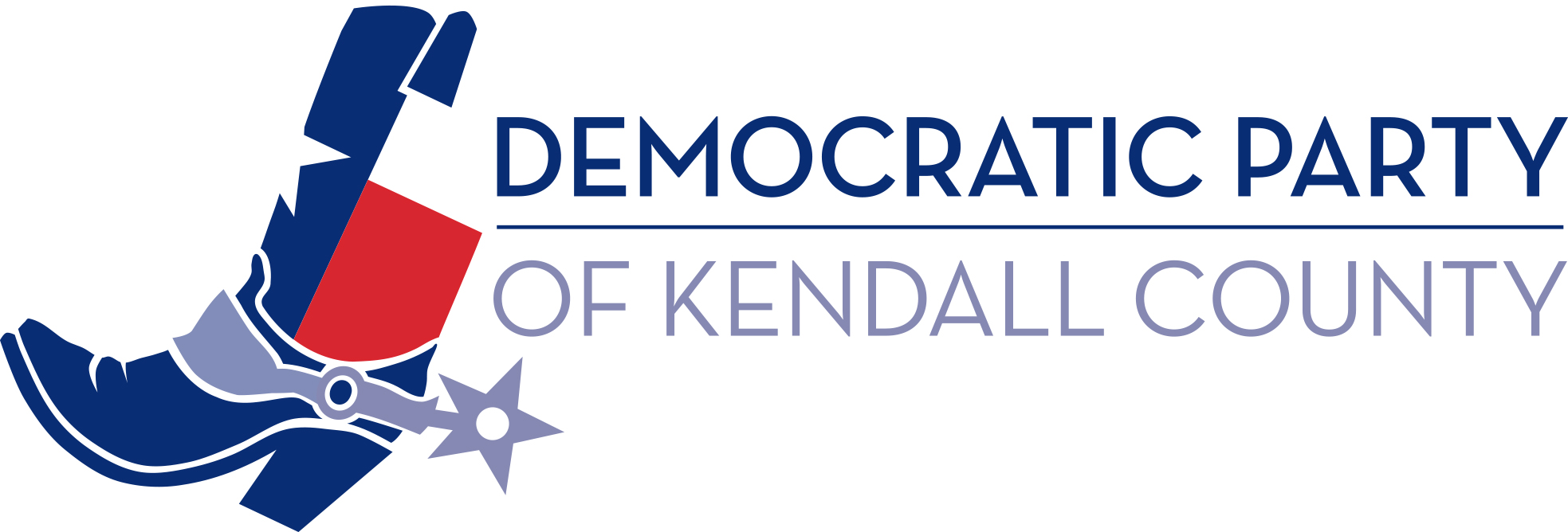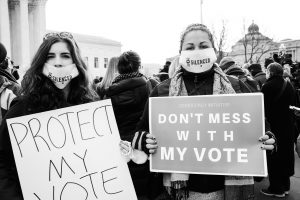By Carol Carpenter
For the “Progressive Views,” Boerne Star, Friday July 23, 2020

The very first bill (H.R. 1, 2019) passed by the 116th Congress is named, For the People Act of 2019. It was introduced into the House by Congressman John Sarbanes (D-MD) on 3 January 2019. On 8 March 2019, the bill passed the House on a party line vote of 234-193 and went on to the Senate. The New York Times called the bill, “The Democrats’ signature piece of legislation.” In so many words, Senator McConnell called it dead on arrival, saying, “I will not put the bill to a vote on the Senate floor.”
What does this bill propose that makes it a “…signature piece of Legislation” for Democrats and so toxic to Republicans that the Senate leader will not even allow the Senators to vote it up or down? The titles of the three categories the bill contains will come close to answering that question. The categories are: Campaign finance reform, Government Ethics and Voting Rights. Without going any deeper than this into the subject matter, my guess is that Democrats would certainly be supportive; while many of the other party would be aware that finance reform, ethics and an increase in voting rights would weaken or destroy their chances of retaining a majority in parts of the country.
It was the “conservative” justices of the Supreme Court who gave us the Citizens United ruling that allows corporations and labor unions to funnel vast sums of money into campaigns. Citizens United, a conservative corporation, wanted to release a film highly critical of candidate Hillary Clinton in 2008. The Federal Election Commission did not allow corporations or labor unions to make contributions to candidates. This ban had been in effect since the early 20th century. Many wealthy corporations in the US are owned by Republicans. H.R.1 (2019) expressed support for a constitutional amendment to overturn Citizens United. Among other provisions, the bill would also make stricter limitations on foreign lobbying and make “dark money” organizations disclose their donors. Why wouldn’t Republicans want to keep dark money and foreigners out of our elections….oh, wait that’s how Trump…!
For government ethics, the bill required presidential and vice presidential candidates to disclose 10 years of income tax returns. Had Trump, as have other candidates, voluntarily disclosed his tax returns, we would have seen what he has continued to hide. This secret is emerging. In her new book, Mary Trump (the President’s niece) sheds some light on Trump’s tax problems. Other parts of this category are about eliminating the use of taxpayer money by politicians to settle sexual harassment claims and creating a new ethics code for the US Supreme Court, which is not subject to existing judicial codes of conduct. This certainly seems reasonable to me. So why are the Republicans so worried about disclosing their income tax returns; or the elimination of taxpayer money to settle sexual harassment claims and the creation of codes of conduct for the Supreme Court Justices?
The third component concerns Voting Rights. Nothing is more basic or necessary to a government of the people, by the people and for the people, than the citizens being allowed to vote for the candidate of their choice. The bill creates a national voter-registration program, makes Election Day a federal holiday and replaces partisan gerrymandering with non-partisan commissions to draw up electoral districts and limits efforts to purge voting rolls. I have been a precinct chair and judge, worked closely with election officials in my county as a precinct organizer, and clerked at the polls. In these capacities I have learned about and witnessed Republican efforts to purge the rolls, discourage voters, and attempt to intimidate poll workers. Worse still is the Republican gerrymandering of districts to control the vote count. Republicans accuse Democrats of having done the same thing. So, why can’t we agree the best way to proceed is to have non-partisan commissions draw electoral districts? Can the answer be, that once in power, the Republicans can only hang onto that power, not by having the best policies, but, by controlling the partisan gerrymandering?
On March 8, 2019, this bill passed in the House and went to the Senate. There it has resided along with 394 other bills passed by the House awaiting McConnell to bring them to the floor of the Senate for a vote. Ironically, he refers to the House as the “Do Nothing House.” If the Senate is going to do nothing, it needs to quit collecting its pay, now, and go home!
Carol Carpenter is a local Democrat



